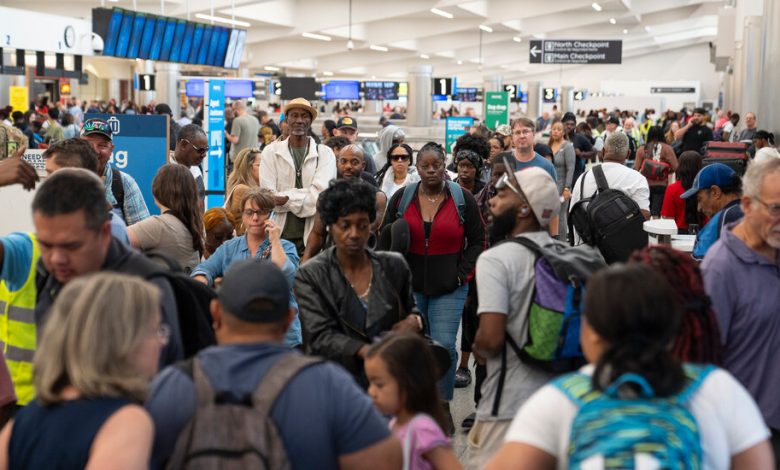How to Guard Against Scams Tied to the CrowdStrike Crash

In the hours after the American cybersecurity firm CrowdStrike deployed a flawed software update that crippled critical businesses and services around the world, scammers pounced.
Government agencies and businesses have warned that the panic caused by the CrowdStrike crash on Friday has given criminals an opening to take advantage of customers who are looking to reschedule flights, access banking information or fix their technology.
Here are some ways to guard against the fraudulent schemes.
Scammers see an opportunity.
CrowdStrike provides cybersecurity for some 70 percent of Fortune 100 companies, so the crash led to widespread failures that grounded planes, crippled businesses, disrupted 911 emergency systems and delayed banking transactions.
Thieves online are using the confusion to carry out a variety of scams, including phishing attempts, the U.S. Cybersecurity and Infrastructure Security Agency said. The National Cyber Security Center in the United Kingdom issued a similar statement noting that an “increase in phishing referencing this outage has already been observed.”
Scammers may look to get your money immediately by offering a product like a bogus plane ticket. But they could also be after personal identifying data that would allow them to access your finances in the future.
What industries are being targeted?
Because grounded planes caused frustrated customers to look to reschedule their flights, travel has been particularly subject to schemers, said Anton Dahbura, the executive director of the Information Security Institute at Johns Hopkins University.